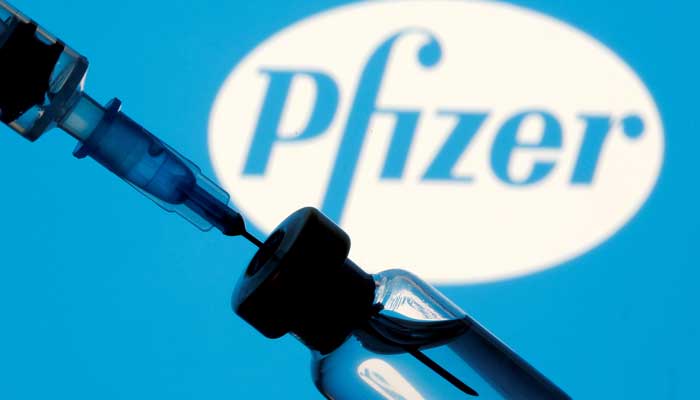US to authorize Pfizer vaccine for age 12 and up: report
The Pfizer vaccine is currently authorized for people 16 and older in the United States
May 04, 2021

- The US Food and Drug Administration (FDA) is expected to grant the approval of Pfizer's vaccine by early next week.
- Moderna is conducting trials of its vaccine in teens, with results expected in the summer, as well as in younger children.
- Johnson & Johnson is also planning pediatric trials for its vaccine.
WASHINGTON: The United States is expected to authorize the Pfizer-BioNTech COVID-19 vaccine for children age 12 and up by early next week, US media reported Monday.
Pfizer has applied for emergency use authorization for its COVID-19 vaccine for children and teenagers between ages 12 and 15, according to CNN, citing a government official.
"The FDA will have to amend the emergency use authorization for the vaccine, but the process should be straightforward," CNN reported.
The US Food and Drug Administration is expected to grant that approval by early next week. After the FDA decision, the Centers for Disease Control and Prevention advisory committee will meet to recommend how the vaccine should be used.
A spokeswoman for the FDA declined to give details on the approval timeline, telling The Washington Post: "We are working to review this request as quickly and transparently as possible."
The Pfizer vaccine is currently authorized for people 16 and older in the United States.
The US pharmaceutical giant said in late March it had submitted data from a clinical trial of 2,260 12- to 15-year-olds that showed the vaccine was highly effective and well-tolerated.
Further testing on younger children is ongoing.
Moderna is conducting trials of its vaccine in teens, with results expected in the summer, as well as in younger children.
Johnson & Johnson is also planning pediatric trials for its vaccine.
Expanding vaccine authorization to include adolescents could open up the US mass vaccination program to millions more people.
The national vaccination rate peaked around April 11, according to official data, and although 55% of US adults now have had one or more doses, there’s still a long way to go to achieve population immunity against coronavirus.
The people most eager to get their shots have, for the most part, already rolled up their sleeves and done so.
But vaccine hesitancy remains a major obstacle: a large percentage of US adults don’t plan to get the shot and could potentially refuse to get their children vaccinated.
Among Republican voters, 29% say they will never take the vaccine, compared to 5% of Democrats and 9% of independents, according to a recent survey by the Kaiser Family Foundation.









